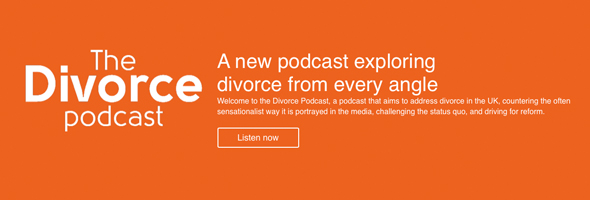3 Ways To Cope With The News Of Your Divorce

- This blog contains affiliate links, which we may receive a commission for purchases. The decision is yours, whether or not you decide to buy.
I remember clearly the moment that my ex-husband told me that our marriage was over. In the space of 10 seconds, the life I knew changed beyond recognition. Overnight, I found myself a single parent of two boys aged 3 and 1, facing an uncertain future, full of fear and doubt.
The early days of my separation were full of pain, confusion and overwhelm, as I went through so many different emotions on a minute-by-minute basis. If, like me, you have been on the receiving end of a sudden ‘out of the blue’ statement that seems to have come from nowhere, it can feel devastating.
Here are three simple tips to help you handle the early days of a separation
1. Breathe
When you find yourself feeling overwhelmed, with thoughts racing around your head, use this simple breathing technique to bring calm:
- Put your hand on your stomach and breathe in, letting your tummy fill like a balloon. As you breathe in, count to 5.
- Hold your breath for 10 seconds.
- As you breathe out, count to 8, and imagine you are breathing out a soft mist in your favourite colour, that envelopes you and will keep you safe.
- Repeat 3-5 times
Notice how concentrating on your breathing can stop your thoughts in their tracks. Your breath really is more powerful than your thoughts, and it can help you take back control of your mind. And you can do this anywhere, without anyone else even noticing.
When you breathe slowly and deliberately like this, you are stimulating the part of the nervous system responsible for relaxation and calming the body.
2. Shift your focus onto YOU
When you are feeling overwhelmed, it can be tempting to focus on them, on asking yourself why this is happening to you, and what you have done to deserve this. Your brain will try to answer the questions you ask it, so practice asking better questions that help you to think in a different way. You could write these on post-it notes and stick them up around your house, or keep them in your wallet:
- Who could best support me?
- What would my best friend say to me right now?
- If there was one good thing about this, what would it be?
- What could I do right now that would make me feel just a little bit better?
By doing this, over time you will take back the remote control to your brain, and create new, supportive goat tracks in your mind.
Write a list of things you enjoy doing and that bring you pleasure and stick it to your fridge. Make a promise to yourself that you will do one of those things every day. They don’t have to be expensive or time-consuming, but they do have to be things that will lift your spirits.
Make sure you do some exercise, even if it’s just a short walk, in the fresh air as this will increase the release of endorphins into your bloodstream.
If, like me, you are struggling to eat, make sure that you eat little and often. This will help stabilise your blood sugars and keep your metabolism ticking over without over-working it.
Avoid alcohol and junk food, sugar and caffeine, and choose foods that will boost your serotonin levels, like fruit and veg rich in vitamin C, and omega-3 fatty acids.
3. Smile
Smiling might be the last thing you feel like right now but believe me it helps. A very wise friend advised me in the very early days of my separation to paint a smile on my face every morning. She said that one day I’d wake up and realise I didn’t need to paint it on any more – it would just be there. And she was right.
At the time I didn’t understand why it worked. Body language and mood are strongly linked, and evidence shows that smiling or laughing, even when you do it on purpose, relaxes the facial muscles, decreases the release of stress hormones, calms the nervous system, and lowers heart rate.
When you smile, you release endorphins into your blood stream, triggering a feeling of wellbeing and reducing pain. When you smile often enough, you will rewire your brain to make positive patterns, which in turn helps you to have more energy, self-medicate and start to heal.
The early days of my separation were the most challenging days of my life, and at times it felt like there was no hope of a brighter future. Over time, and by using these techniques and more, I emerged from the fog – and you will too. It’s not what happens to you that makes the difference.
Written by Claire Black, Break up & Divorce coach at Claire Black Coaching.
Visit www.claireblackcoaching.com for further information.
PHOTO CREDIT: FLICKR HELIN
You may also like
Books
Buy now from Amazon
- The Power of Positive Energy
- Manifest: The Sunday Times bestseller that will change your life
- Parenting Apart
Podcast
Kate Daly is co-founder of amicable and host of the The Divorce Podcast. Kate created The Divorce Podcast to discuss and demystify divorce, separation and co-parenting in the UK. In each episode, Kate is joined by experts in their field to explore divorce and separation from every angle.
Articles
- Divorce Mediation Explained
- 7 Things You Should Think About Before Filing For Divorce
- Is Online Mediation Right For You?
Videos
Practical advice and tips from professionals on what to do with issues and challenges around divorce from parenting to finance.
Events
Practical tips & advice designed to help people going through divorce, whether online or in person.
Useful links
Here's a selection of organistaioins from parenting to finance to help you with your divorce.
Legal professionals
Related Posts
-

Most Common Age for Divorce in the UK and the Key Reasons Behind It
-

Reclaiming Joy After Divorce: Small Daily Rituals That Make a Big Difference
-

Navigating Social Media During Separation: Essential Dos and Don’ts in the UK
-

Is Silence Destroying Your Marriage? How Poor Communication Leads to Divorce (And What You Can Do About It)
-

When Is the Best Time to Start Family Mediation in the UK? | Guide for Separating Couples

.)

.jpg)
.jpg)



.jpg)

